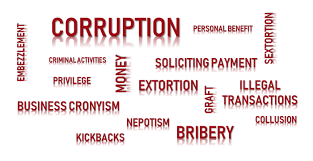Share this
As was highly anticipated, the government has moved to put in place new Covid-19 containment measures in the Lake Basin region. Beginning today (18th June 2021), Curfew will begin at 7.00 PM and end at 4.00 AM.
The affected counties are Kisumu, Siaya, Busia, Bungoma, Vihiga, Trans-Nzoia, Kericho, Bomet, Kisii, Nyamira, Migori and Homabay.
Burials within 72 hours
Other measures put in place include an order to have all burials within 72 hours of confirmation of death, restricting funeral attendance to 50, ban on in-person worship, ban on non-food item markets and attendees for weddings and other traditional functions have been capped at 30.
In a rather unclear directive, the government also says that “Except for essential and emergency services, movement between the hotspot Zone and the rest of the country is strongly discouraged.”
While in previous directives the government has clearly ordered for cessation of movement as a means of containing the pandemic in areas that have been designated as disease hotspots, the use of the phrase “strongly discouraged” has left many wondering what the directive means and how it will be enforced.
The 13 counties that have been designated as a “disease hotspot” have in the past 14 days registered a positivity rate of 21%, which is more than double the national average of 9%.
Walking on the streets of Kisumu and indeed several parts of the Lake Basin region, you will hardly think that we are in the heart of a deadly pandemic that has now cost us the lives of 3,308 Kenyans.
Very few are wearing face masks, those who are, doing so incorrectly. It is not uncommon to see the face masks on people’s chins, or others donning extremely dirty ones that beyond Covid-19 puts them at risk of contracting other hygiene-related ailments.
Why would there be such a lackluster attitude towards the pandemic and the containment measures put in place by authorities?
Impact on livelihoods
Covid-19 has in many ways disrupted what was considered normal. The most affected are people’s livelihoods.
According to the Kenya National Bureau of Statistics, Kenya has a large and growing informal sector, which contributed 83.6% of total employment in 2018 and 33.8% of GDP in 2015.
Most of the jobs in this sector rely on personal interactions – trading in markets, small restaurants in towns and peri-urban centers, bars and night clubs, events and the transport sector among others. All these are in one way or the other affected by containment measures.
In a case like ours where the government has not offered any meaningful subsidies to those affected by the pandemic and its containment measures, there will no doubt be a reluctance to comply. Entrepreneurs have been put in a situation where they have to choose between dying of hunger which is imminent and contracting/ facilitating the spread of the virus which is only a probability.
Corrupt enforcers
The corrupt nature of our enforcement mechanisms is not making things easier. This is why it is not uncommon to see crowded nightclubs in Kisumu and other towns in the region operating beyond the stipulated time. At times with police officers parked right outside the premises protecting the revellers.
I don’t need to explain to you how that contributes to the surge in numbers we are witnessing in the region, I will be belabouring the point.
It is however not just businessmen and enforcement agencies who are ignoring the containment measures. To some level, we have all been careless at some point (to different degrees). I know I have, so I will not sit here on a high horse and pass blanket judgement.
Covid-19 fatigue
We have attended a funeral that exceeded the allowed limit, attended a wedding, went to church or other places of worship where the protocols were not being strictly adhered to, heck even attended house parties or gone to a nightclub.
We crave what we knew as normal. Many of us are exhausted both mentally and physically. We have lost livelihoods, we lost loved ones and it is understandable.
After a year of this pandemic where phrases such as “stay at home,” “flatten the curve” and “social distancing” have become part of our daily vocabulary. Many people are experiencing a type of burnout experts call COVID-19 fatigue. This, experts say, at times drive people to act in reckless ways.
Defiance by all
But like I pointed out last week in the first bit of this two-part series, the actions of those entrusted with formulating policies that are supposed to keep us safe are not inspiring us to adhere to the containment protocols.
With our lives disrupted, economic constraints checking-in, conspiracy theories bombarding us at every corner of social media we turn to and mental fatigue, politicians running around the country doing exactly what they are asking us not to and others looting funds meant to help the vulnerable, it’s difficult to blame people for having the attitude they have towards the pandemic.
The unfortunate net effect of this is that we are going to see the increase in cases that we are witnessing in the Lake Basin region. Worse still, they will result in deaths – mortalities that are increasingly becoming people we know and not just numbers we see in the evening news bulletins.
Back to Kisumu, the current wave we are experiencing is not surprising. There were warnings about it and it could have been avoided. Those we tasked with the duty to protect us failed.
But as if they did not learn anything from this, another round of political activity is set for the lower regions of Easter Kenya in the next week. Predictably, after the political bigwigs leave, the region will have to contend with an upsurge of cases, overstretched healthcare system and new containment measures put in place. Never mind that officially political gatherings are banned.
For us to successfully contain this pandemic, we must all learn to adhere to the laid down procedures. The rules have to be applied to all and sundry. Not a separate set for the leaders and a totally different one for the masses. We are all tired, we are all inconvenienced and as long as we have disproportionate enforcement of the measures we will have defiance in all corners. After all, there are not enough policemen to follow everyone around. We don’t want to get there.





